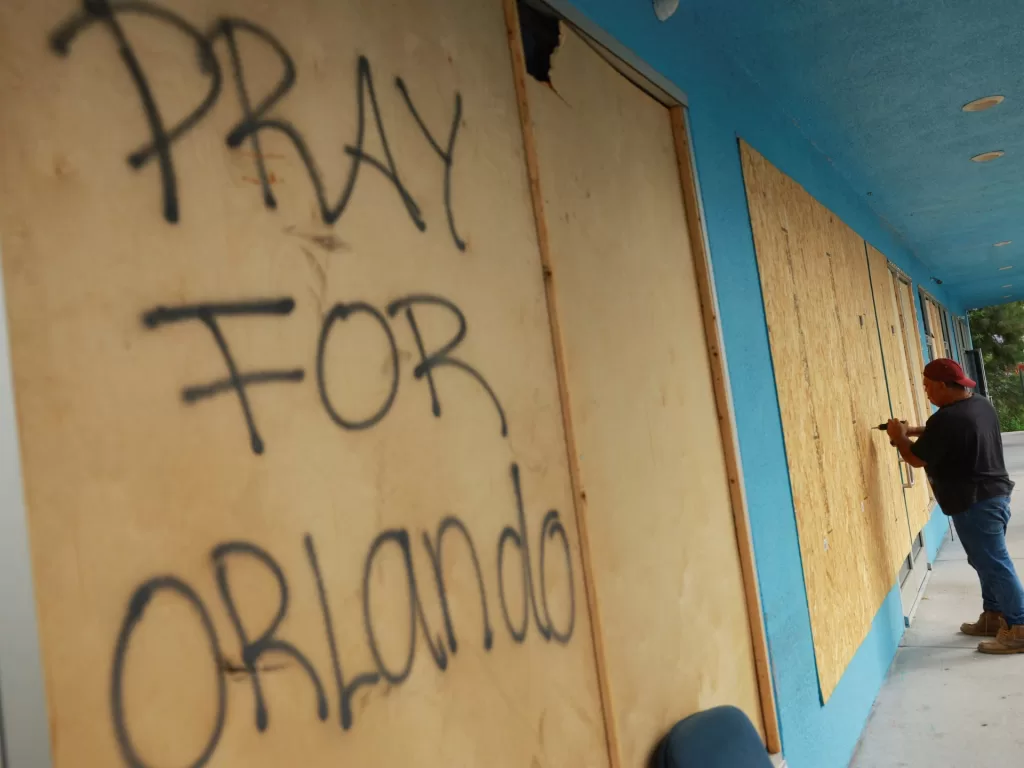‘Storm of the century’ set to hit Tampa on Florida’s west coast, home to more than three million people.
Millions of Florida residents have fled the US state as Hurricane Milton approaches, with officials there warning that those who stayed would “die” and that single-story homes would turn into “a coffin”.
“We are a few hours away from an epic catastrophe,” Tampa Congresswoman Kathy Castor told CNN on Tuesday. The Tampa metropolitan area, home to more than three million people, is directly in the hurricane’s path, as is a vast swath of Florida’s western coast.
Forecasters have described the hurricane, which is expected to make landfall on Wednesday night, in apocalyptic terms, warning it would be the “storm of the century”. That emphasised the power of Milton in a state that is no stranger to hurricanes, having already been battered by a series of devastating storms in recent years.
The National Hurricane Center said Milton would cause an “extremely life-threatening situation” and is expected to bring damaging winds and torrential rainfall that will extend inland and outside the forecast cone. It weakened slightly from a Category 5 storm to a Category 4 as it approached the west coast of Florida, but is still extremely powerful.
The hurricane comes just two weeks after an earlier one, Hurricane Helene, hit on September 26, causing widespread damage across the southeastern US, including in Florida, and killing more than 200 people – mainly in North Carolina and Georgia.
Trucks have been running 24 hours a day to clear mounds of debris left behind by Helene before Milton potentially turns them into dangerous projectiles, Florida’s Governor Ron DeSantis said. He added that preparations are under way for what will likely be the largest search and rescue operation in Florida history, once the storm passes.
“We have hundreds of search and rescue personnel on hand,” DeSantis said. “The National Guard is deploying 6,000 Florida National Guardsmen as well as 3,000 National Guardsmen from other states.”
“We have never had these many resources prior to a storm.”
Climate change
Millions of people along a stretch of more than 483 kilometres (300 miles) of coastline were under evacuation orders. But as gas stations ran low on fuel, fleeing resident jammed highways, and hotels in areas outside the storm’s path were still full with people displaced by Hurricane Helene. Many vulnerable people were unable to leave or had nowhere to go.
Others wondered whether there would be anything left for them to return to.
“Will I have a house to come back to?” Tampa resident Heather Roulston told Al Jazeera as she prepared to leave her home, which was already severely damaged by Hurricane Helene. “Hopefully, it will be salvageable.”
Milton is predicted to be the biggest storm to hit Tampa in a hundred years, with winds likely topping 200km/h (124mph). It is the third-fastest intensifying storm on record in the Atlantic Ocean, having grown from a Category 1 to a Category 5 in less than 24 hours. Officials are particularly concerned about a storm surge that could reach a staggering three to five metres (10-16 feet), washing away anything in its path.
The hurricane’s speed and force, as well as the increasing frequency of major weather events, are a direct result of climate change and the warming of the seas.
“These extremely warm sea surface temperatures provide the fuel necessary for the rapid intensification that we saw taking place,” said climate scientist Daniel Gilford of Climate Central, a nonprofit research group. “We know that as human beings increase the amount of greenhouse gases in the atmosphere, largely by burning fossil fuels, we are increasing that temperature all around the planet.”
